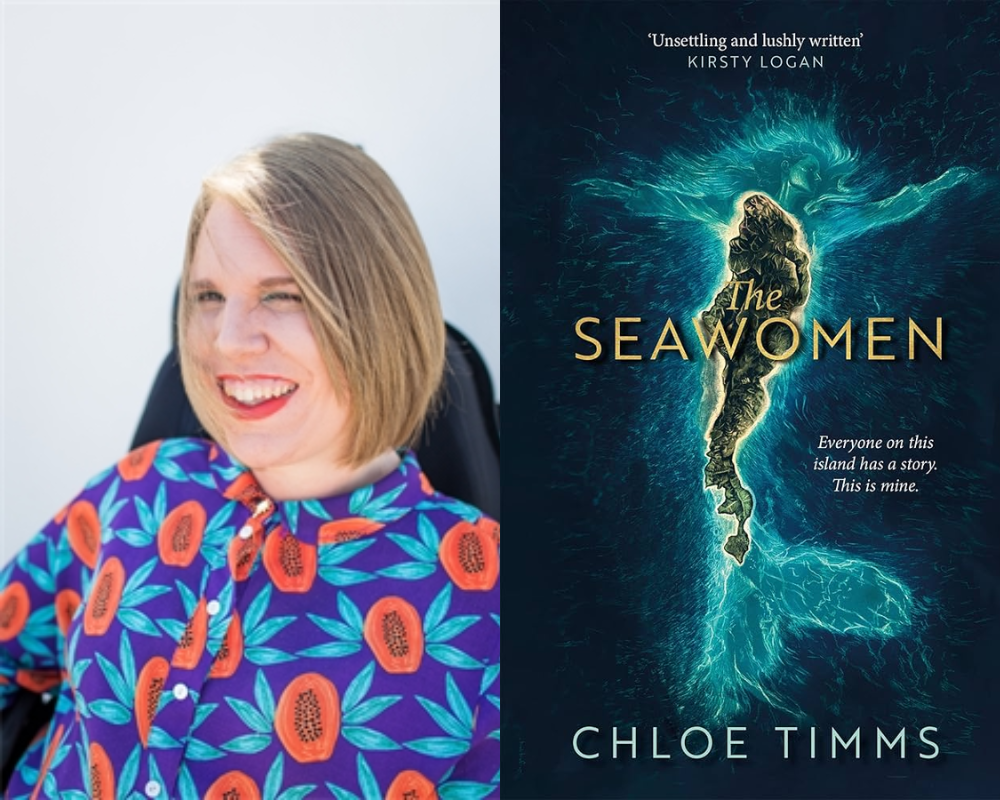Author Chloe Timms shares five essentials that make for a brilliant first chapter.

Picture yourself in your favourite bookshop, selecting a novel from a shelf. You like the cover and the synopsis on the back sounds intriguing, you flick to Chapter One and begin reading. You’re halfway down the first page and you’ve already made up your mind. This is the book for you. It might even become one of your all-time favourites. You head to the till and count down the minutes until you can start reading it. Sound familiar? We've all done it. We've even done the opposite. A few sentences in, a resounding: “Nope!” and back on the shelf it goes.
In a world where novel writers are competing with limitless entertainment, a captivating first chapter is more important than ever. You might be hoping that those intriguing first few pages impresses your writing group, wins you a competition or even entices an agent. But more importantly – the beginning of your novel is going to be the deciding factor in grabbing your readers too.
It can be daunting starting any new creative work, and if you’re a novelist you’ll know the hours of dedicated work that goes into completing a book, but don’t let the fear of the blank page put you off. Opening chapters are important, but they’re unlikely to be perfect on your first draft. But once you’ve finished a first or second draft, and you’re ready to polish, why not check your opening pages against my top five tips below?
Five Essentials for a Brilliant First Chapter
- Set the tone
Tone and voice can often be the big decider for readers when they pick up a book. Think of it this way: if you picked up a book from the crime section you should immediately be able to tell whether the novel is a cosy-crime or a police procedural. Set your readers’ expectations, pick a tone and be consistent with it. Think about how you want the reader to feel as they’re reading.
- Focus on one character
Who is your main character and why should we care about them? What makes them unique and memorable? It’s often characters who linger with us long after we’ve stopped reading and when we begin a new book, we want a character we can latch onto and see the world through their eyes. Of course you can have multiple protagonists, but it can be confusing if you introduce too many characters at once, so ensure you have spent long enough with a single character in your opening pages.
- A flavour of time and place
Getting the balance right between giving the reader a taste of the setting, era and world they’re in and telling a propulsive story is a real skill! When you’re writing a novel that relies on the setting – be it historical, fantastical or other-worldly – the danger can often be “info dumping”, literally dumping all the world-building onto the page right at the start. The most effective method is to sprinkle it into the action, show the reader the world when the character moves through it. There’s room for gorgeous descriptive prose too, but don’t forget your reader is also here for a good story!
- Set up the problem
Who’s the killer? Will our star-crossed pair fall in love? How will the monster be defeated? Every novel starts with a set-up, a question. Once you’ve given your main character a problem/challenge to solve, your reader won’t be able to put the book down until they know how it’s resolved. Make sure you set up the problem sooner rather than later. We should meet your protagonist just before their life dramatically changes.
- Leave the reader with questions
Gripping opening chapters don’t need thrilling car chases or explosions to excite your reader, but you do want to leave them with questions. Beginning your novel with something surprising, intriguing or unexpected will encourage your reader to keep reading to have their questions answered. This doesn’t mean you have to write a mystery – maybe you’ve written an unusual character who keeps their cards close to their chest!
None of the above is a hard and fast rule. If in doubt, go back to your favourite books and try and work out what it was that they did in those first pages that made you carry on reading and fall in love with the novel and see if you can emulate it.
You can book a place at Chloe's upcoming workshop How to Write Your Opening Chapters on 9th Jan
Chloe Timms is a journalist, author and podcast host from the Kent coast. After a career in teaching, Chloe gained an MA in Creative Writing from the University of Kent and won a scholarship to the Faber Academy. Chloe is a mentor to emerging writers and specialises in supporting fellow disabled writers. In 2022 Chloe launched her podcast Confessions of a Debut Novelist. The Seawomen is her first novel, published by Hodder & Stoughton.

Discoveries is the Women’s Prize’s writer development programme designed to address the specific challenges that women face as writers.
Unlike most initiatives of this kind, Discoveries is completely free, and writers are not required to have finished their novel, to enter.
The submissions window closes on 13th January 2025.
Comments